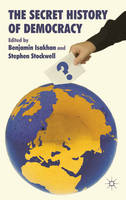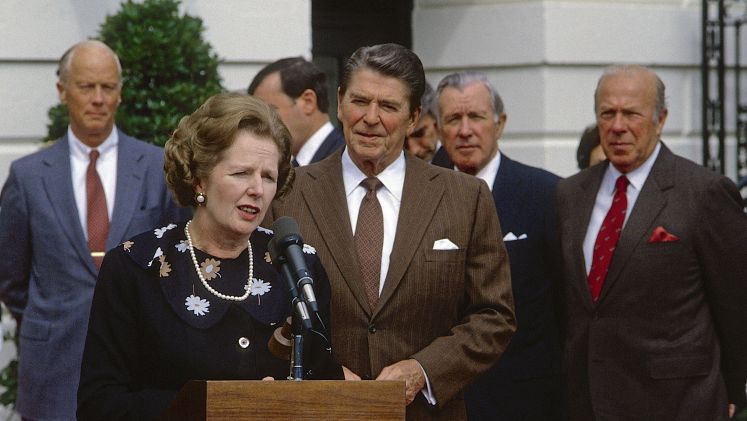Charles Crawford reviews a book of essays by academics and experts on democracy’s supposed ‘secret history’ .
The Secret History of Democracy. Benjamin Isakhan and Stephen Stockwell. Palgrave Macmillan. 2011.
Find this book: ![]() Google Books
Google Books ![]() Amazon
Amazon ![]() LSE Library
LSE Library
 Professors Stephen Stockwell (Griffith University, Australia) and Benjamin Isakhan (Research Fellow, La Trobe University, Australia) bring together a book of essays by academics and experts who want to persuade us that democracy has a ‘secret history’ separate from the ‘traditional Western narrative’ on the subject.
Professors Stephen Stockwell (Griffith University, Australia) and Benjamin Isakhan (Research Fellow, La Trobe University, Australia) bring together a book of essays by academics and experts who want to persuade us that democracy has a ‘secret history’ separate from the ‘traditional Western narrative’ on the subject.
Do they succeed? Not as much as they think they do. They include a wide and usually interesting range of contributors and subjects: governance models in Phoenicia, China, ancient India, medieval Iceland, early Venice; democratic and feminist impulses in Islam; different participatory community organisation in Africa, aboriginal Australia and among the Métis people of western Canada; and thoughts on ‘monitory democracy’ as more and more people use cheap technology to follow what is going on.
Yet the collection is uneven: some contributors drill too far down into detail, or strain to make their subject fit the wider ambition of challenging that ‘Western narrative’. The book contains the ghastly Dave Spartan jargon phrase “In a very real sense…” twice in four pages.
One astute highlight is Poppy Fry’s essay showing how the nineteenth century Cape Colony in today’s South Africa had voting procedures including all ‘races’, albeit skewed by property qualifications to keep African voters to a minimum. It took many decades for these proto-democratic laws to be weeded out as an apartheid ideology was formalised.
The editors’ Introduction labours to identify a unifying theme by eschewing an ‘undemocratic comprehensive and static’ definition of democracy. Instead we are offered Jacques Derrida’s obscurely open-ended celebration of the ‘multiplicitous nature of democracy’ and its ‘emancipatory promise’.
To move towards this promise three factors must (say the editors) be evident: willingness to participate; equality of access to information, free speech and voting; and civic virtue to accept the rule of law and majority decisions. “If democracy can be understood in this way, it is inconceivable that it has only (sic) occurred in the small collection of historical epochs with which it is usually associated.”
Well sure. But so what? All through human history the reach of leaders’ rule has been tempered by some sort of participatory or consultative process. The collection gives us all sorts of examples of how and where this has systematically happened, many of which might deserve a mention in our history books. But the editors’ factors surely exclude the most important one, namely a robust mechanism for changing leaders. Without that focus for leaders and voters alike, participatory and consensus-building activity is not going far?
The underlying theme is not always convincing in other ways. Yes, ‘Western’ ideas of democracy have been flawed (persisting slavery, disenfranchised women, discrimination for homosexuals and other groups, excessively top-down vision of governance and so on). Yet when the contributors share with us other less well-known forms of supposed democratic cooperation, such failings tend to be played down.
It would have been interesting to hear more about the underlying dynamics of these secret democracies. Steven Muhlberger’s careful account of the many early Indian republics does not explain “the slow abandonment of republican ideals by republicans themselves … in favour of hereditary executives”. This is a fascinating subject (see also today’s North Korea and Cuba): why do certain families come to take over?
Most importantly, the contributors show no understanding of the importance of sheer scale. Human dialogue and participation in any extended family or clan or even larger ethnic community may not work in a much bigger context. Quite different issues of managing trust appear. Rules need to be drawn up, promulgated and enforced.
The power of the Western democratic model lies here, namely in the breadth and depth of the civilisational achievement to deliver codified rules for some sort of fair-minded governance scaled-up for larger populations and (in the case of the early years of the USA) designed to be applicable across vast thinly populated territories with rudimentary communications. In Search of Jefferson’s Moose: Notes on the State of Cyberspace by David Post (2009) is a brilliant study of that organisational challenge, exploring how principles developed back then might apply in cyberspace.
The collection concludes with a brisk essay by John Keane (marred only by a gratuitous swipe at “an infamous American vice-president Dick Cheney”) on ‘Monitory Democracy’. It describes how citizens increasingly check what is happening in the democratic process (inputs and outputs) and demand to be partners in their own governance.
Perhaps that’s the way forward: to use new technology to bring to much larger-scale government some of the texture and democratic intimacy which smaller societies have enjoyed down the ages?
Charles Crawford is a former British diplomat.
Find this book: ![]() Google Books
Google Books ![]() Amazon
Amazon ![]() LSE Library
LSE Library





